Beatrice Wanjiku Wangui joined Trees for the Future’s (TREES) Plant it Forward (PIF) Training program in 2019. As their incomes grew, she and her fellow group members began saving part of their earnings to invest in a joint venture.
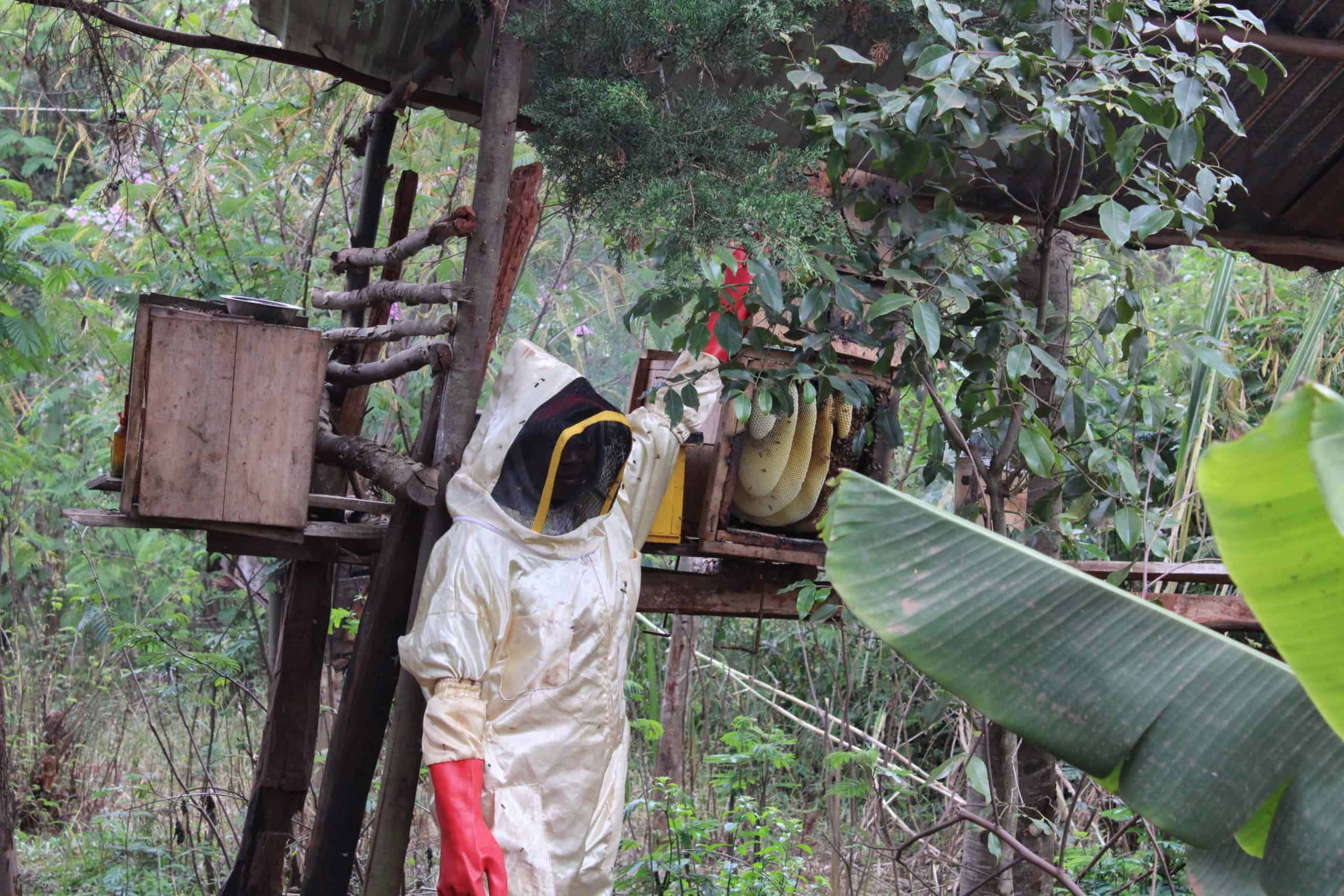
Investing in a Shared Business
Three years later, they’ve started their very own enterprise: a honey business.
“Unlike livestock, bees are easy to maintain,” says group member Joseph Ndung’u. “I only visit the apiary twice a week. This enables us to do other activities in our Forest Gardens.”
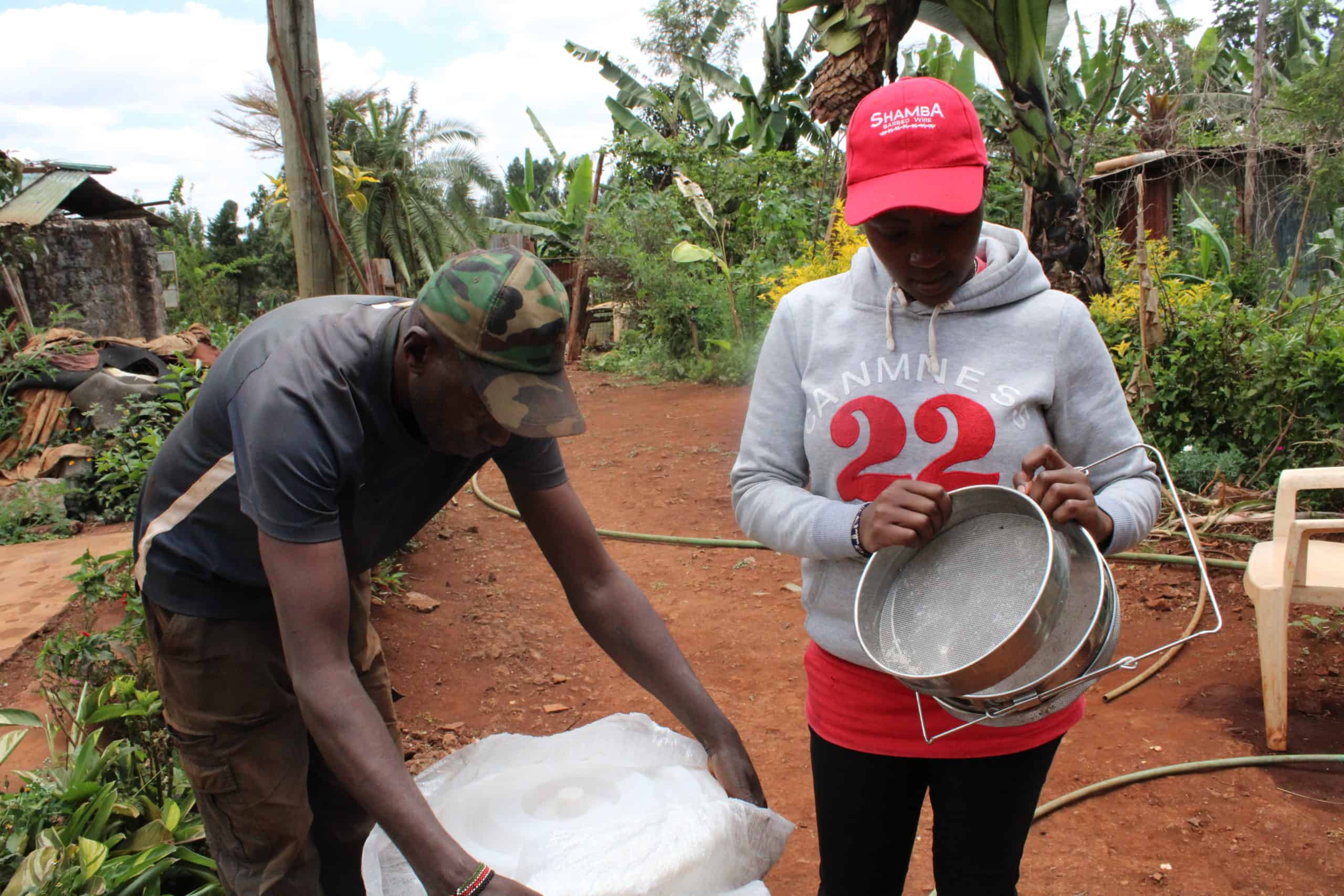
Richard and Beatrice prepare the honey extractor.
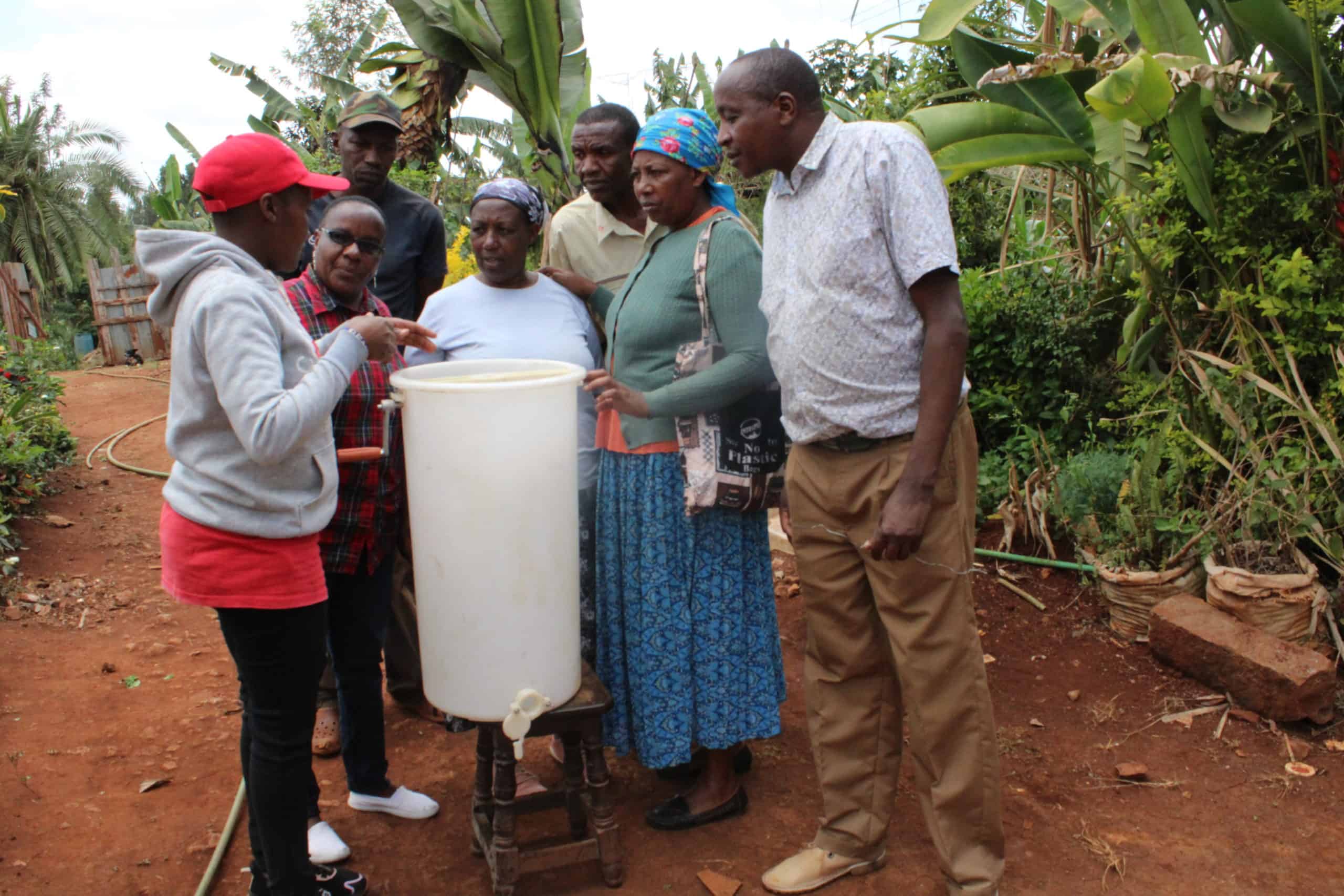
Beatrice (left) and her farmer group gather round a honey extractor during a training led by TREES’ Paul Kihara (right).
Each farmer manages a thriving Forest Garden on their own property. Their shared apiary is located on Richard Gikonyo’s farm. He credits his TREES training for his beautiful, mature Forest Garden.
“TREES’ training has helped me reclaim my farm,” he says. “The production was low due to depleted soils caused by use of synthetic chemicals which was not economical at all. Sometimes I could not afford to buy the fertilizer, but currently compost manure works excellently for me.”
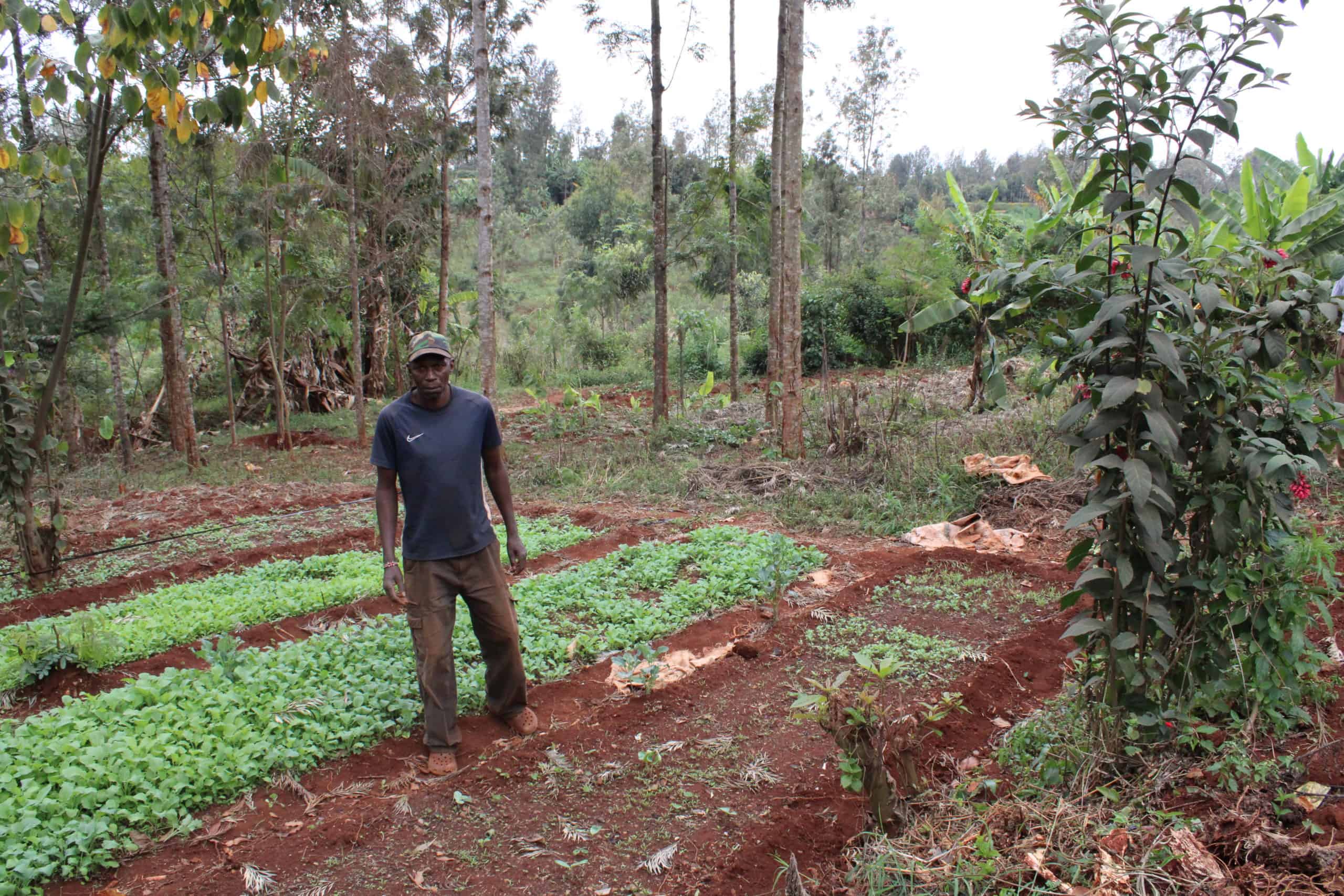
The group’s shared apiary is located in Richard Gikonyo’s Forest Garden.
Establishing an Apiary
The group’s apiary sits nestled in a cluster of Richard’s calliandra trees. Farmers and bees have a mutually beneficial relationship. Richard’s pesticide-free farm gives the bees a healthy habitat and, in return, the bees support pollination for farms across the village. Bees and other pollinators are an integral part of the food system. They’re responsible for successful seeding of more than 90% of all flowering plants and the fruiting of 30% of our food.
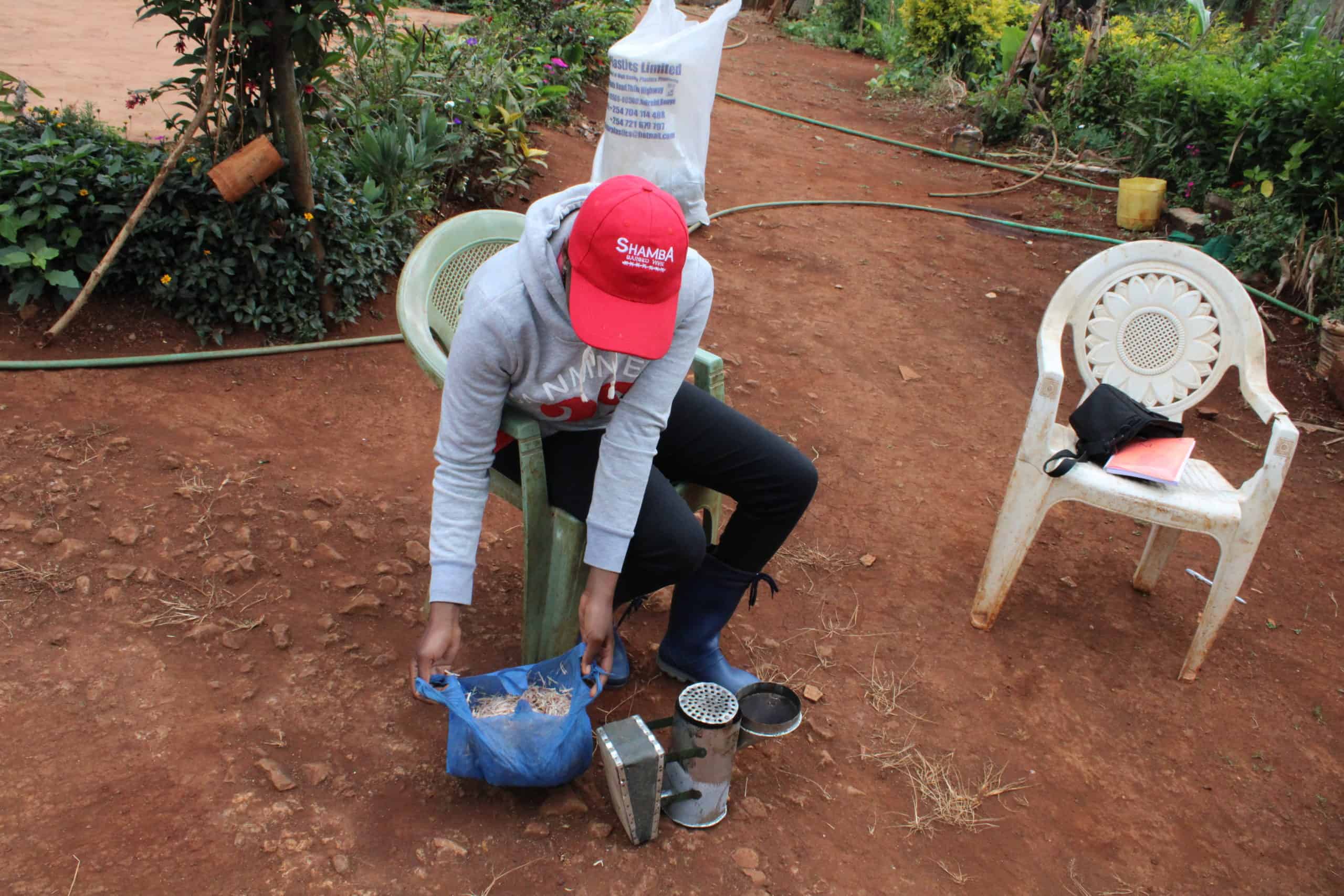
Beatrice fills a smoker with sawdust before inspecting the hives.
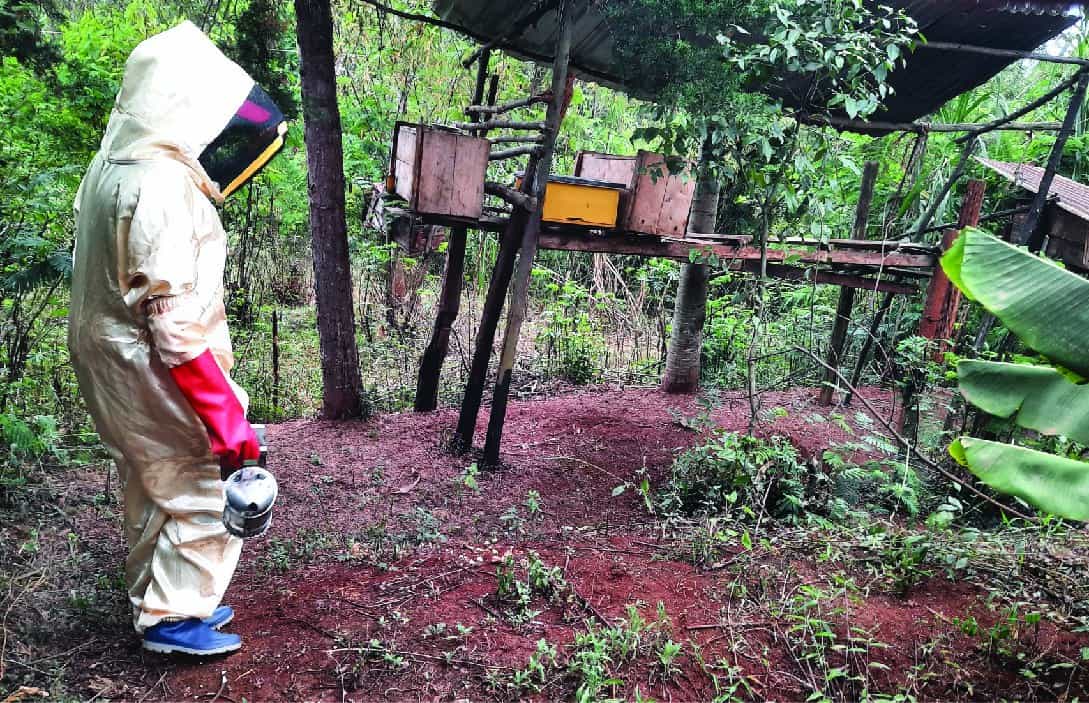
The group is selling their honey locally, turning additional profits on top of their already successful Forest Gardens. Beatrice says farmers are investing their earnings in household necessities and their children’s education.
“I am pleased to have been able to offer services to TREES farmers and I look forward to seeing their efforts bear fruits,” she says. “I would encourage more farmers to consider the possibility of venturing into apiculture not only for money but also for ecological benefits.”
Beatrice and her neighbors are seeing an increase in the price of honey and hope to sell their product commercially in the future. Until then, they’ll continue working hard and enjoying the sweet fruits of their labor.